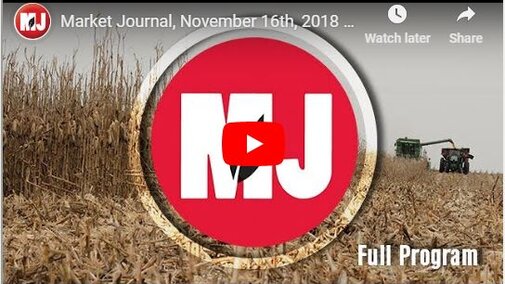On this week's Market Journal program host Troy Moling talks with Clyde Ogg, Nebraska Extension pesticide safety educator, about pesticide regulation changes for this year and what to expect in upcoming years. These include several label-specific changes for the new dicamba products and several other pesticides. Farmers who make their own applications carry the burden to carefully read, understand, and follow all of the new label requirements, Ogg notes.
Additional regulation changes in the next few years will likely include more applicator licensing categories, including for fumigation and aerial application, and stricter requirements for identifying applicators at the time of training. Also, the minimum age for pesticide applicators will likely be changed to 18, he said. (It's 16 years in many areas now.)
For more pesticide updates, view the whole segment. Information on pesticide training options for 2019 will be in CropWatch in December.
Other segments this week:
Market Analysis
Market analyst and author Elaine Kub discusses the current crop progress report and how weather is affecting harvest.
Crop Residue Exchange
Jay Parsons, extension farm and ranch management specialist, and Daren Redfearn, extension forage crop residue specialist, discuss the online Crop Residue Exchange, and the research that led to its development. They also discuss how grazing can affect croplands.
Livestock Hauling Guidelines
Kristen Hassebrook, executive director of We Support Agriculture, explains the new guidelines for hauling livestock and poultry.
Weather Outlook
Al Dutcher, Nebraska Extension agricultural climatologist, gives his forecast for the coming week.

